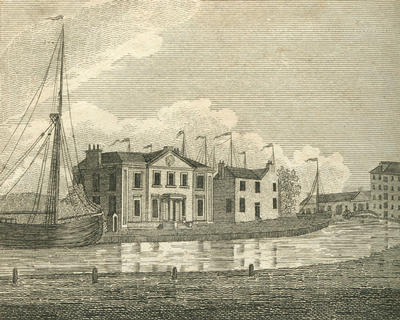
Prior to the opening of the Glasgow branch of Forth & Clyde Canal in the late 18th century, there was a limited amount of industry in Woodside.The area was mainly rural, although there were a few quarries and coal pits. Most of the coal from the pits at Woodside was consumed at the Dumbarton Glassworks. A wooden tram road from the pits , crossed Dumbarton Road and extended to a quay situated on the river nearly opposite to Renfrew. From this quay the coals were shipped by to Dumbarton.
The opening of the Canal transformed the area by attracting many industrialists to establish manufacturing bases in Woodside. Once it was extended to Port Dundas , the location right on the edge of growing city meant there that there was a constant labour market available, and the manufactured goods could be easily transported. The peace and ambience of a gentle rural idyll was soon shattered by the smoke and noise from numerous factories, foundries and mills.
Some of these industries were well-kent household names across Scotland and beyond, such as Waddell’s Sausage’s , City Bakeries and confectionery firms such as R.S. McColl’s and Buchanan’s . Manufactured goods from foundries such as the Phoenix, the Elmbank and Oakbank were transported across the country, and in some cases to the far corners of the world. perhaps less familiar was the Woodside Pottery in Napiershall Street, whose manufactured goods included flowerpots and chimneys.
Today most of these industries have gone and little remains to be seen, apart from the remains of the Flint Mill on the Kelvin Walkway. In this section of our website though, you can read about what was once here. It may be that there are some of you reading this who remember these factories and foundries, and perhaps even worked there. If so, we would love to hear from you!
